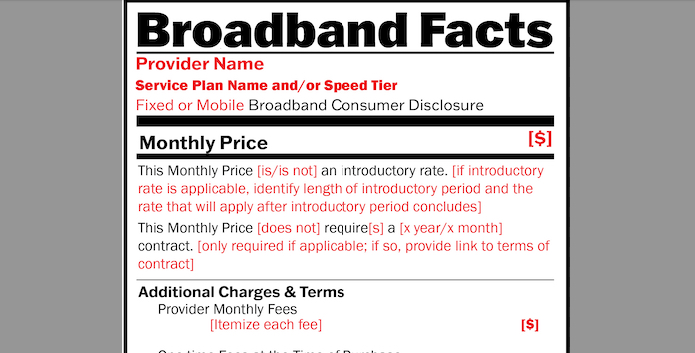
The Federal Communications Commission has rejected most of the requests that it reconsider its online broadband-labeling rules, but did grant a request by ACA Connects that it reconsider its requirement that broadband providers document each instance when they direct a consumer to a label on an alternate sales channel, and to keep that documentation for two years.
That came in an order released Tuesday (August 29).
As ACA Connects, which represents smaller, independent cable providers, suggested in a petition joined by NCTA-the Internet & Television Association, the FCC will clarify that the requirement to document such redirects will be satisfied if:
- “The provider establishes the business practices and processes it will follow in distributing the label through alternative sales channels [i.e. in retail stores or phone interactions].”
- “Retains training materials and related business practice documentation for two years.”
- Provides such information to the Commission upon request, within 30 days.”
Otherwise, the FCC largely declined to reconsider the rules it came up with for the consumer broadband labels. That means that providers will have to itemize the fees they pass along to consumers. Providers, including ACAC, had wanted the FCC to allow them simply say, “Additional fees may apply.”
FCC chair Jessica Rosenworcel said: “Every consumer needs transparent information when making decisions about what internet service offering makes the most sense for their family or household No one wants to be hit with charges they didn’t ask for or they did not expect. That’s why Broadband Consumer Labels are so important.”
Congress mandated the labels so consumers can better gauge just what kind of broadband service they are getting, including price, speed and quality. The FCC then came up with rules for the program, which they released in a Report and Order. The ACAC/NCTA petition was filed Jan. 17. The rules were passed in November 2022.
The rules will not become effective until the new data collection requirements are vetted and approved by the Office of Management and Budget. Smaller operators — of 100,000 or fewer subscribers — will have an additional 12 months past that OMB approval date to comply.







